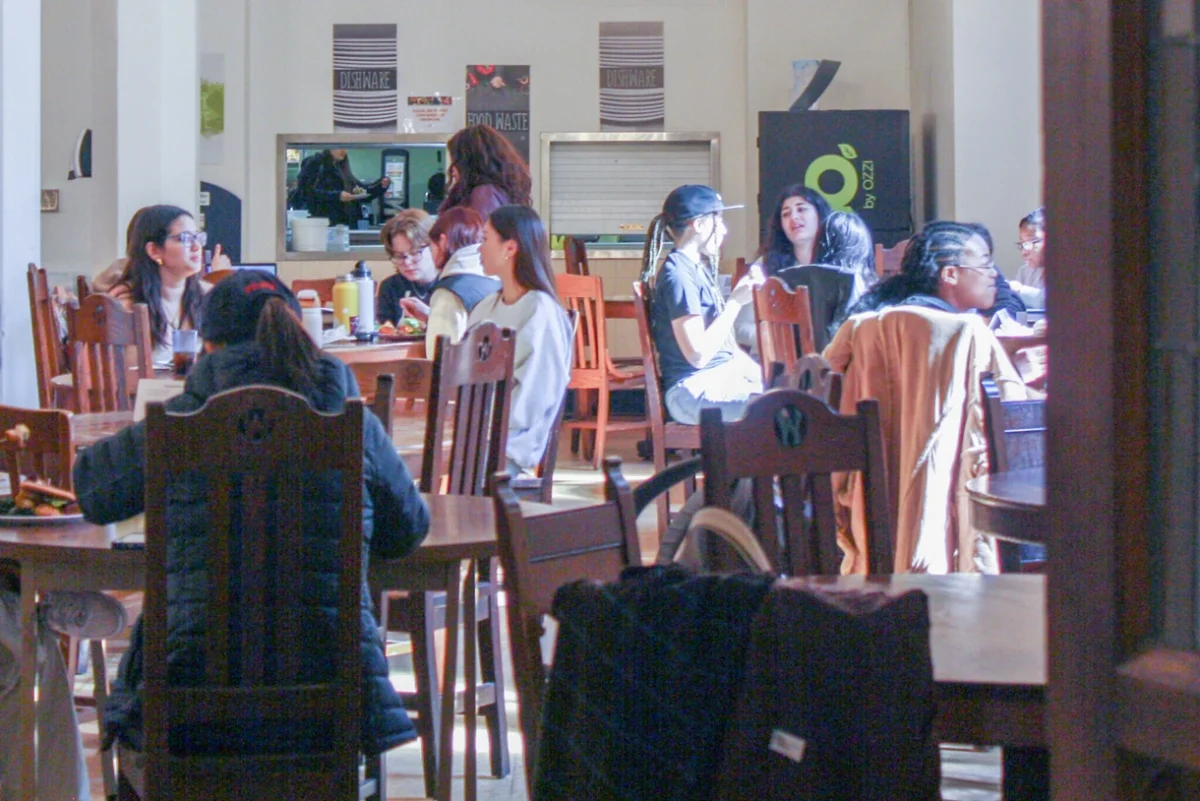By WENYAN DENG ’15
Staff Columnist
A member of Wellesley’s class of 2015 from Beijing, China, I am currently studying international politics at the University of Cambridge in the United Kingdom. This column gives a feel of what life is like as a U.S. student studying abroad at Cambridge. This week, I focus on the differences between Cambridge and Wellesley academics and the unique challenges of the Cambridge system.
Academic expectations at Cambridge are not entirely distinct from those at Wellesley, but there are some significant contrasts. At Wellesley, I wrote approximately one essay of 1,500 words a month per 200-level lecture class. If I took four classes a semester, I would write an essay about every two to three weeks. At Cambridge, students enroll in classes that are really supervision sessions during which a “supervisor,” the professor, meets with a student one-on-one or one-on-two on a weekly basis. Students are required to write a 2,000-word essay each week during the eight-week trimester. The bright side? Here students only take one class, and they get to go on an Easter Break for five weeks after completing the trimester.
Qualitative standards are also different. At Wellesley, most professors allow students to discuss essays ideas with them. Some will even read drafts and give feedback before a student turns in a paper. Essay writing at Wellesley is like preparing for a performance. Drafting the essay is analogous to rehearsals. Each time a student edits her essay, she improves her performance. The final draft that a student hands in to her professor is the final, on-stage performance. Wellesley students aren’t expected to be perfect—after all, we’re only college undergraduates—but many students want their essays to be close to perfect. That’s why they’re eager to put in the time to meet with professors in advance of the due date.
The process of writing an essay at Cambridge is different. Only two of the essays I’ve written this term have incorporated comments from my supervisor, and her input was brief at best. Students are expected to rely on their own judgments and interpretations of the hundreds of pages of reading they did over the past three days.
Some Wellesley students choose not to discuss their essays with professors during office hours, but they still benefit from weeks of class discussions on the readings. The Cambridge model is different in that lecture classes, which meet twice weekly, do not include discussions. Supervision sessions are devoted to discussing student papers after they’ve been completed and graded. There is usually no chance to discuss the articles and books we’ve read for a paper with anyone before or while writing a paper.
There are seminar classes at Cambridge, but those are very rare, occurring only twice per term. These seminar classes are very similar to how Wellesley 300-level classes are conducted, and usually offer a chance for useful discussion on the readings. Their rarity, however, means they aren’t much help for writing weekly supervision essays.
At first, I felt helpless as I began to write papers without having the ability to communicate with my supervisor during the process. Gradually, however, I recognized the benefits of a system in which students receive regular one-on-one attention and guidance in their writing processes. Being able to read a vast amount of literature in a short timeframe and complete critical analyses of that literature is a valuable skill to acquire. I became a more independent student when I had to write long essays in only a couple of days without being able to fall back on office hours. Similarly, I became a faster writer when I had to complete one essay per week. Finally, I found the structure of my supervisions to be helpful and valuable. I enjoyed being able to closely debate my arguments with some of the best minds in academia. I do, however, miss being able to talk about readings on a weekly basis with my peers and professors.
At Wellesley, most classes meet at least twice every week, and the reading for a 200-level class typically amounts to about 100 pages per week. Students taking four reading- and writing-intensive classes would therefore have 400 pages of reading a week. Wellesley students usually have more than a week to work on an essay and oscillate between writing research papers on new topics and answering questions posed by the professor that pertain to a specific set of class readings.
The Cambridge model encourages students to write papers that address certain questions assigned by the supervisor and based on the given readings, but the system also allows for the inclusion of other readings not listed on the syllabus. Of course, many Wellesley professors will allow students to interpret essay questions as they wish and incorporate readings not discussed in class, but it’s a lot more challenging to bring in outside research when you only have a week to do the assigned readings and pull a paper together.
A consequence of the tight time constraints for each essay is that I have to plan ahead carefully to maximize my free time every week. I usually have to read four to five articles and one or two books per week. I realized early on that if I wanted to have time to write a quality essay, I couldn’t do all of the assigned readings. Now I take three days to do as much reading as possible while taking notes and use two more days to write each 2,000-word paper. This allows me at least two full days every week to travel. On average, therefore, I have a bit more free time here than I did back at Wellesley, because I spent slightly longer preparing for my four Wellesley classes than I now do for my weekly paper at Cambridge.




